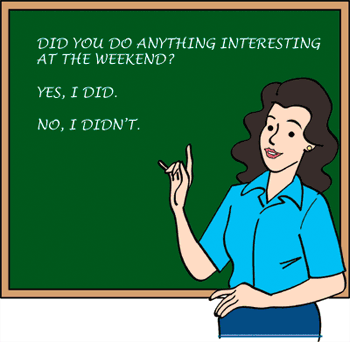Login form
Basic English Curriculum for Teaching
 The follow grammar points will provide students with a solid base to build their English speaking and comprehension skills. Specific points are included in notes for the various grammar points.
The follow grammar points will provide students with a solid base to build their English speaking and comprehension skills. Specific points are included in notes for the various grammar points.
Page 1
Present Simple / Present Continuous (Present Progressive)
Note: Contrast between habits and temporary actions
Past Simple
Past Continuous
Note: Focus on use with the past simple to describe 'interrupted actions' in the past
Present Perfect
Note: focus on use of present perfect for unfinished time - i.e. the duration form. Focus should also include adverbs commonly used with the present perfect: since, for, just, already, yet
Future with 'Will'
Note: Contrast this form with future intentions form - i.e. future with 'going to'
Future with 'Going to'
Note: Contrast this form with future predictions form - i.e. future with 'will'
Present Continuous (Present Progressive)
Note: Use for future intentions and plans, discuss similarities to future with 'going to'
First Conditional (Real Conditional)
Note: Used for probable or realistic situations
Modal Verbs of Deduction Note: Use of 'must be', 'might be' and 'can't be' use in the present
Some - Any
Note: Call to attention the irregular use of some in requests and offers
Quantifiers
Note: too, enough, a lot of, a few, much, many (in question and negative forms), etc.
Prepositions of Place
Note: in front of, opposite, behind, between, across, etc.
Prepositions of Movement
Note: straight on, on your right, past the house, into, out of, etc.
Common Phrasal Verbs
Note: get on with, look after, fed up with, put off, make up, etc.
Verb + Gerund
Note: like doing, enjoy doing, go swimming, etc.
Verb + Infinitive
Note: hope to do, want to do, manage to do, etc.
Basic Verb and Preposition Combinations
Note: listen to, arrive at, go through, etc.
Comparatives & Superlatives
Note: taller than, more beautiful than, as tall as, happier than, the tallest, the most difficult, etc.

